MasterClass | Donnie Yen: Real Martial Art to Highlight Personal Charm
Just like Western films in the United States and samurai films in Japan, "kung fu films" are almost a unique genre of Chinese films. With the popularity of kung fu movies, a group of martial arts stars with different styles have also come to the fore. China Hong Kong martial artist, actor and director Donnie Yen is one of them. During the 24th Shanghai International Film Festival (SIFF), Donnie Yen not only served as the promotion ambassador for the Belt and Road Film Week, but also went to the MasterClass on June 14 to share his life as a martial artist with fans.
Donnie Yen was born in Guangzhou in 1963 and inherited his mother's martial arts talents since childhood. He integrated the martial arts of various schools of China and the West to form a personal martial arts system. Among his film masterpieces include "Ip Man", "SPL", "Kung Fu Jungle", etc., the "Ip Man" series has been hailed as one of the most influential action movies in the past decade. He has won the Huabiao Award for Outstanding Overseas Chinese Actor and Hong Kong Film Awards for Best Action Design and other awards. The martial arts created by Donnie Yen are both ornamental and practical, and incorporate a variety of martial arts styles and personal characteristics. He also has a strong appeal in the international film world. He was invited to participate in "Star Wars Anthology: Rogue One" and "Xander Returns 3", "Mulan" and other movies. During this year's SIFF, Donnie Yen also brought a new film "Crossfire".
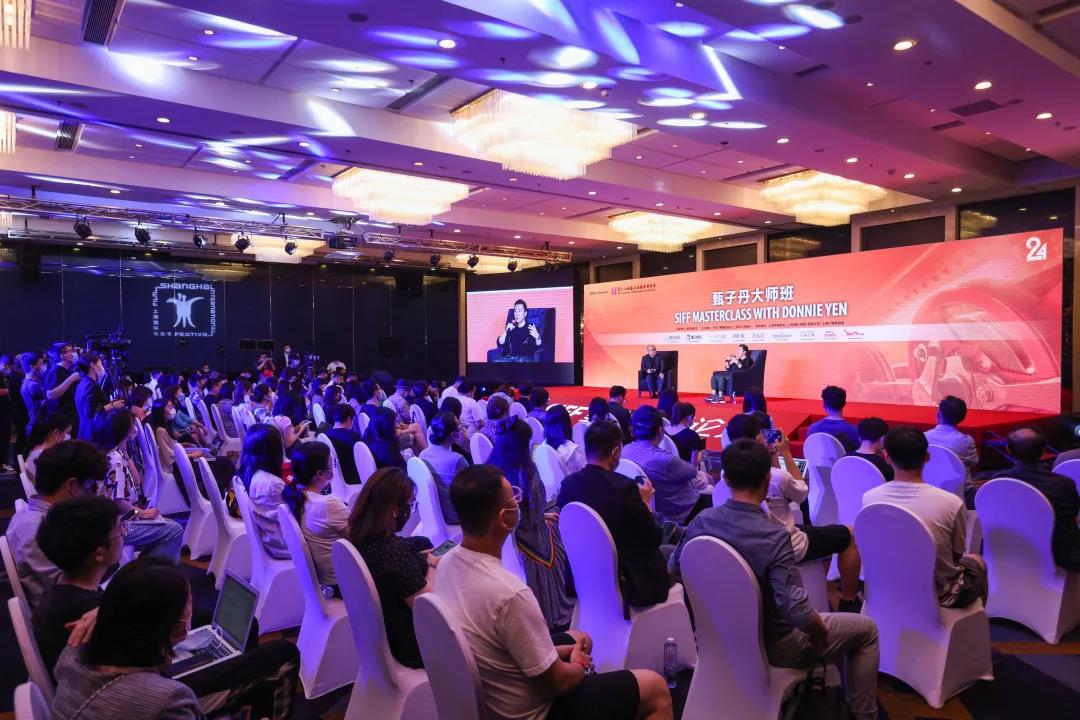
Kung fu movies need to highlight "personal charm"
In the MasterClass that day, Donnie Yen first reviewed his artistic career. Donnie Yen’s mother, Ms. Mai Baochan, is an internationally renowned martial artist and Tai Ji master. She has opened martial arts gyms in Hong Kong, China and the United States. Donnie Yen has learned boxing from his mother since he was a child. In the early 1980s, Donnie Yen was sent to the Beijing Martial Art Team to study for more than a year.
Donnie Yen laughed and said that he stepped into the film industry by accident, and to a certain extent, he would like to thank his mother. It turned out that the sister of the famous martial arts instructor Yuan Heping was once one of Donnie Yen's mother's students. When Donnie Yen returned to the United States from Beijing and passed through Hong Kong, Sister Yuan recommended Donnie Yen to her younger brother. "His sister told Yuan Heping that there was a child, and I was seventeen or eight years old then. She said you should meet him, he took his Yuan’s troupe out for tea, asked me a lot of questions, and then arranged an audition."
At that time, Yuan Heping was planning a new film "Drunk Tai-Chi". Yuan Heping and Jackie Chan collaborated with "Drunken Master" and "Eagle's Shadow" with great success. He hoped that "Drunk Tai-Chi" could surpass the previous works and he needed an actor with solid martial arts skills. Donnie Yen, a young man with extraordinary skills, just met Yuan Heping's conditions. Two weeks later, Donnie Yen got the contract and entered the industry.
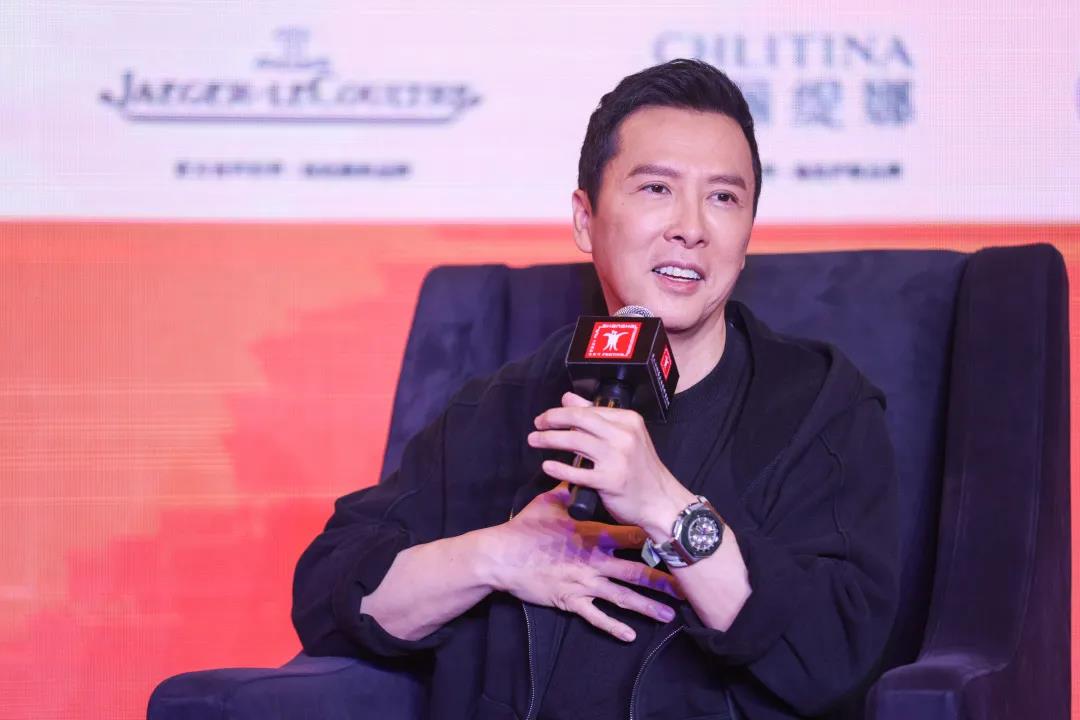
Recalling his experience at the beginning of his career, Donnie Yen said that the shooting of kung fu movies was relatively simple at that time. As long as the actors were enjoyable, thrilled, and played for a long time, the film would be a hit. The audience’s demands the rationality of the plot and the actors’ acting skills were not high. He mentioned that the main force of kung fu film shooting in Hong Kong at that time was divided into several teams according to the leader, such as Hong's troupe, Cheng’s troupe, Liu's troupe, Yuan's troupe and so on. "There are very strict rules between different teams, if you want to borrow talents and shoot scenes." So. the personal style of the leader directly affects the team's direction and performance.
In the middle and late 1980s, Sammo Hung and Jackie Chan successively released films such as "Project A", "Wheels on Meals", and "Five Lucky Stars". The fashion action films and new styles of gangster films as opposed to kung fu movies in that period became popular, and the audience's taste gradually improved. Yuan Heping, who received the contract of "Tiger Cage", also has to face this new challenge.
At that time, Donnie Yen boldly proposed to Yuan Heping to "highlight personal style." For example, after a fierce battle, ordinary kung fu movies will place the last shot on the person who was knocked to the ground. In Bruce Lee movies, the last shot is always reserved for Bruce Lee. "But you didn't think he was bad-looking, you didn't think he was not powerful enough, but you thought he was very attractive. The feel before and after the battle matters, how he punches, and how he takes his punches back after punching is completely personal charm."
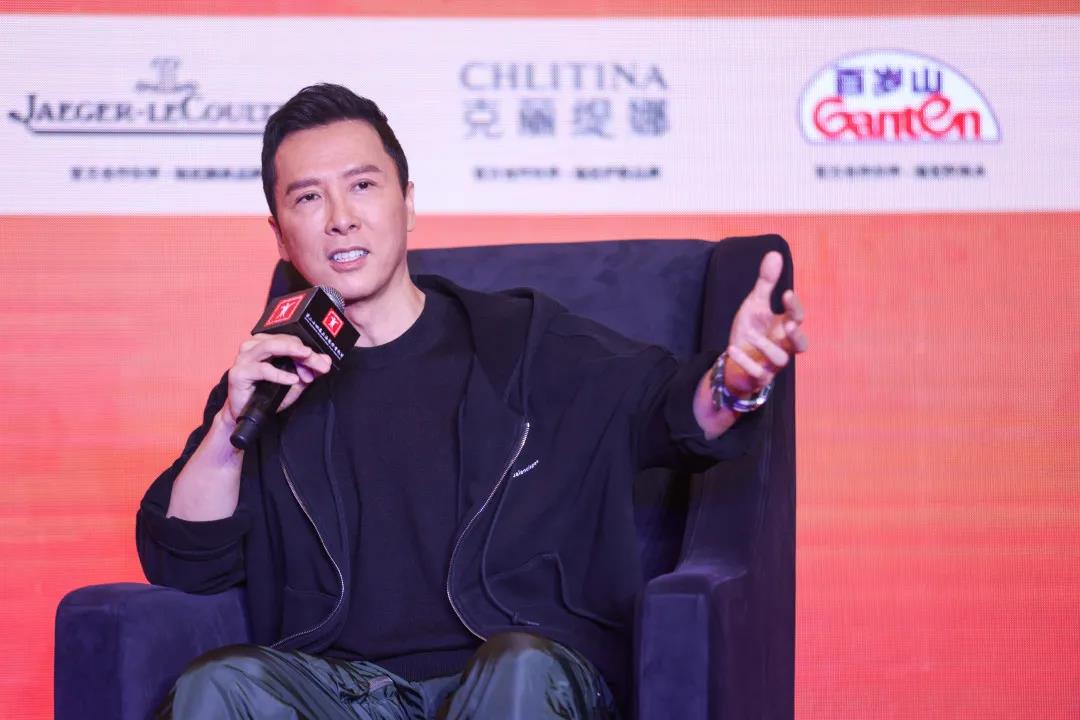
Based on the idea of "personal charm" in kung fu movies, Donnie Yen began to study how Hong Kong action movies can be in line with international martial arts trends such as MMA (Mixed Martial Arts), and how to pose after a trick. Yuan Heping was a little bit resistant at first, but slowly accepted his opinions, and then shot the very classic "Tiger Cage". "We don't have any props. We only have two people. This is the original intention. Tell Baye (Yuan Heping) that we use the lowest cost to show the style of two people."
From "Tiger Cage" to "Yes, Madam!", to "SPL" and "Ip Man", this has always been an important method for Donnie Yen to make kung fu movies. It is precisely because of this unremitting pursuit of "personal charm" that Donnie Yen can continue to receive invitations from international blockbusters. The latest news is that he will play a very important role in "John Wick 4".
Participating in international blockbusters, for Donnie Yen, also means giving himself a chance to let the world see the charm of Chinese actors. So, he usually asks the producer two questions. First, the role he played in the film, and the overall content, respect or disrespect Chinese people and Chinese culture. "I have always done this. Today, I may have more influence. I must speak for our country. If you can’t tolerate it, you will say it.” Another very important task is to use your influence to “make the audience feel that Chinese people are not so rigid, and we can do whatever you can do”.
The highest level of martial arts movies is to be real
Entering nearly 40 years in the industry, Donnie Yen has never stopped exploring between tradition and innovation. In the film "Swordsmen", Donnie Yen played Nanquan out of a modern fighting style when filming a fight with Hui Yinghong, which made movie fans refreshed and applauded. Speaking of his own experience, Donnie Yen said: "I really spent decades studying the knowledge of action movies, and I am still studying it. I will never tell you that there is a fixed method."
Just like mobile phones are constantly being updated and iterated, with each new film, Donnie Yen hopes to make improvements. "I think film is not only an art, but also a technique, a technique of technology. Technology will always improve, so we must have the attitude of continuous improvement and continuous innovation, otherwise you will definitely fall behind. Every time I shoot my film, I will summarize: this time I shoot in this way and everyone has such a reaction, and then what I will shoot next time."
This requirement for self-improvement, first of all, is to study how to break through the field of action movies. In Donnie Yen's view, filming itself is a way of communication, just like talking, singing, and dancing, but how can you make everyone understand, listen interested, and applaud? The most important trick here is to control the rhythm. "Just like singing and speaking, there must be a beginning, a middle, a climax to the end, so this must have a rhythmic arrangement. I haven't changed much all the way, I have controlled this rhythm all the way to design all those moves that people will like. Basically, I lead you in, let your emotions enter my game, push your emotions higher and higher all the way, stop at a certain position, let you breathe, and feel what I designed at the time, the whole game, and the whole mood, and push you high to another layer."
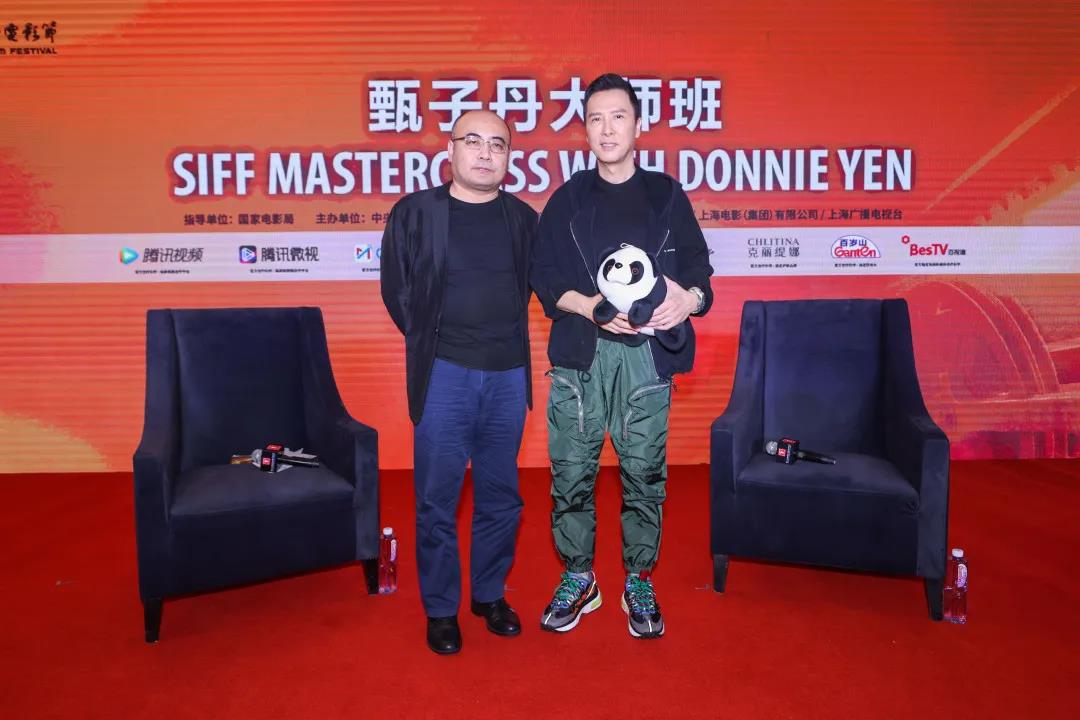
Donnie Yen has a "martial art star" background, but he said that in recent years he has paid great attention to improving acting skills and researching characters. In his view, the highest level of martial arts movies is to make the audience feel that the characters, stories, and actions in the film are real; and being able to fight the most real is actually an acting skill. "You must have the best kung fu, the best acting skills, and perform on the screen with the most real feeling. I think that for action movies today, you must combine the two before you can continue to go further, otherwise you’ll stay in one place forever."
Donnie Yen said that it is more important to impress the audience with "being real" than with "actual shooting". "Why do you think my fight looks good? It's because you feel it’s very real. I don't want imaginary and unreal things. My life is so precious, you must have something that I can experience."
There are two opponents "let me play quite concentratedly"
There are many classic fight scenes in Donnie Yen's films, such as with Jet Li in "Once Upon a Time in China" and so on. Donnie Yen said: The masters' tricks are like tango. "How to cooperate well and whether we can create a new height of combination will test each other's understanding and skills. This is very subtle." Among the many collaborators, there are only two people who can make Donnie Yen "fight quite concentrated."
The first one is Jet Li. In "Once Upon a Time in China", Jet Li’s role of Huang Feihong was of course very powerful, but Donnie Yen, who played the opponent, thought that he must express a certain state, and Tsui Man-Kong had asked him to play it to inflict on Huang Feihong the most powerful pressure. "Everyone is all in, using the fastest speed. Jet Li is really fast, he is fast, I want to be faster, he will then be faster too. If you slow down a bit, all the light crew would say once more. You would feel sorry, so, everyone has to play the best. Jet Li is indeed a formidable opponent."
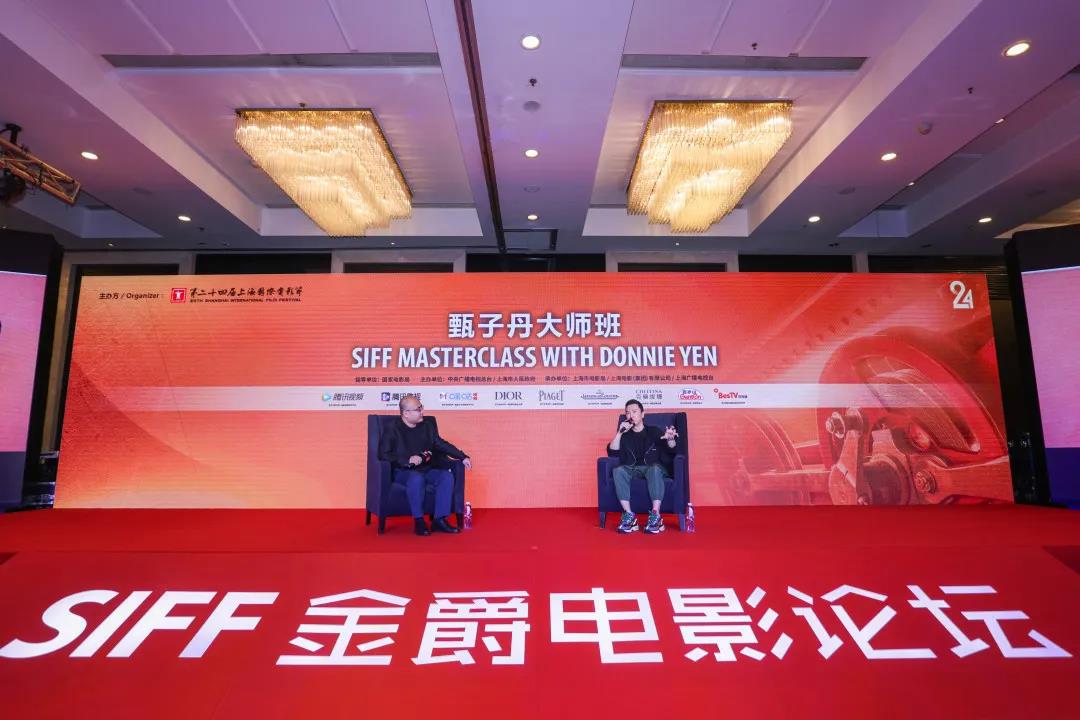
When it came time to shoot "Hero", Jet Li put more pressure on Donnie Yen. Donnie Yen used a very long red tasseled spear, while Jet Li used a sword, which meant that when Jet Li took a sword trick, Donnie Yen had to double the speed to turn the spear in a circle. "I really used all my explosive power to encounter his swordsmanship. He might make three or four swords in a second. I have to do three or four spears under the attack of three or four swords, so the pressure is very high."
Another opponent to bring great pressure to Donnie Yen is Tyson. Donnie Yen is a boxing fan of Tyson. Tyson was invited when filming "Ip Man 3". Donnie Yen said that he was excited like a little fan. But Donnie Yen was also very clear that Tyson could punch, but he couldn't shoot, and he wouldn't show mercy when filming. "I remember when I was fighting against him, I told myself that you must be very cautious. Don't think you are making a movie. You really have to treat him as if you are fighting him in a boxing ring. It’s a life and death show. Being a little bit careless will be deadly."
Donnie Yen recalled that at the shooting scene, Tyson had an uppercut. He should have to do a dodge action, but the bowing of the film was very particular, requiring all tricks to be close to the end. "I couldn't flash early. I had to wait until he almost approached my head. That’s so dangerous. I felt his fist wind at the time, like a big truck coming towards me. I felt that wind. Wow, now I still remember it clearly, it’s really dangerous, that punch, the fist is so big, he touched my hair. I fulfilled Baye’s request again, flashed at the last moment, and at the same time don't let me hurt. This is the most stressful thing for me."







